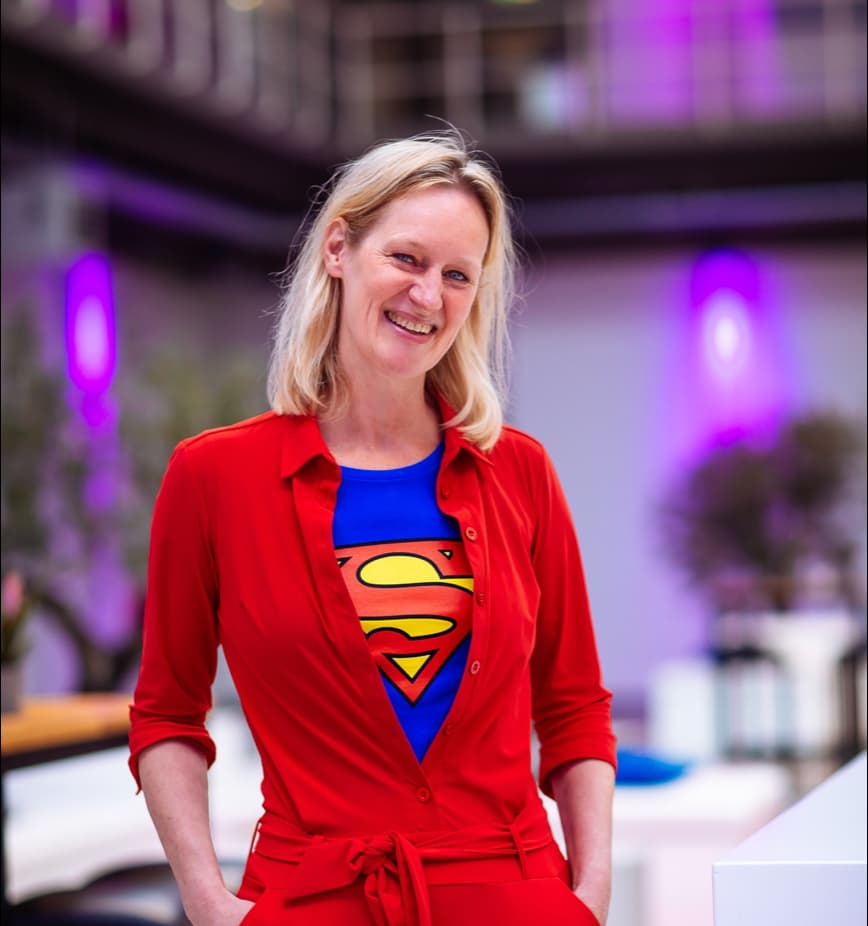
Innovation in organisations often comes with lots of resistance. The story of Dutch Climate professor Jan Rotmans, who almost got fired for his groundbreaking climate model, shows this. But his perseverance ultimately led to success. Yet sometimes it may be better to give up, writes columnist and innovation expert Simone van Neerven.
"It was a disgrace"
“The RIVM was on the verge of firing me twice because my work was too controversial.” Jan Rotmans, professor and activist, was the first in the world to develop an integral model to map global climate change. People said that he modelled something that did not exist.
About thirty years ago, when he got his PhD, there was no knowledge about climate change. “It was very controversial, but despite all resistance, also within my institute, I felt that I had to continue. Some colleagues thought it was a disgrace.”
Ahead of time
Rotmans didn’t take the easy path. He worked on issues such as climate change, sustainability, and transitions. Topics that were still pretty unknown to most: “I fought and struggled for decades because I was quite ahead of time.”
You will encounter lots of resistance when you work on concepts and ideas that aren’t commonplace. It’s hard for people to imagine something that goes against everything they’ve always believed to be true. And instead of being curious about the unknown, they cling rigidly to their certainties and fiercely resist that new idea. They try to undermine it and sometimes make it personal, as Rotmans has often experienced himself: “I have many scars on my back. All that fighting and struggling, it gets to you.”
Getting ahead of the troops is always laborious, painful, and never the easiest way. So why do people choose that path? And when is it better to play it safe?
Don't give up
We all know by now that the Post-it was an accidental discovery. However, 3M employee Spencer Silver’s part in its success is less known. While most people had already forgotten about the failed experiment, Silver knew the product had potential and kept peddling it for years. It turned out he was right; the Post-it became one of the most iconic products of 3M.
Rotmans also had a deep conviction that he was on the right track with his climate model, even when almost everyone claimed it was nonsense. Despite all resistance and the despair that regularly struck him, he did not give up: “When you only receive criticism, that’s very upsetting. You start to think it might not be possible or you can’t do it, but I am a fighter.”
Support from the top
A strong belief in your idea is not enough to make it successful. To keep going, a helping hand at the right moment can make all the difference. When Sony engineer Ken Kuturagi was developing a game console, he encountered much opposition from his management. But Sony’s CEO supported him and ensured he could continue his work. Eventually, Kuturagi developed the PlayStation, one of Sony’s most successful products.
One of the directors who wholeheartedly believed in Rotmans was able to support him at the critical moments. When the other directors considered firing him, he could prevent it. Having support from higher management isn’t a guarantee for success, but it can help you enormously. So, if you don’t have a sponsor, think twice about whether you want to continue to fight for your idea.
Dare to leave
Another reason to keep going with your groundbreaking idea is when you have nothing to lose or dare to leave. For example, Eric Yuan, an engineer at Webex, received many customer complaints. He wanted to improve the service, but his ideas fell on deaf ears. He became so frustrated that he resigned and set up his own company. That was Zoom, which became more successful than Webex.
In the early nineties, when Rotmans started at the University of Maastricht, the word ‘transition’ in the social context did not yet exist. When he wanted to set up his own institute, the board of directors hesitated enormously, and it took Rotmans a lot of effort to convince them. Despite serious doubts, he was given a chance. Over time, the topic gained more popularity, and Rotmans switched to the Erasmus University Rotterdam: “There I finally was able to realise my dream: my own transition research institute”.
Know what you are getting yourselves into
A controversial idea is rarely welcomed with open arms and comes with difficulties and disappointment. Rotmans has also experienced this: “A lot of pain, both physically and mentally. And you hardly trust anyone anymore. Once I became successful, people who always criticised me said: ‘I always believed in you!’”
However, when you pull it off, it also gives a fantastic feeling. Rotmans’ institute has proven to be a great success and has grown into an international network with thousands of researchers: “I am very proud of that. Everything I started against all odds still exists. Although the climate model was doomed and cursed, it is now used in every negotiation.”
Like Gandhi once said: “First they ignore you. Then they laugh at you, and fight with you. But in the end, you win”.
This article was originally published in Dutch on MT/Sprout, the most popular business and management platform in the Netherlands.
don’t miss out!
get my columns straight into your mailbox:


